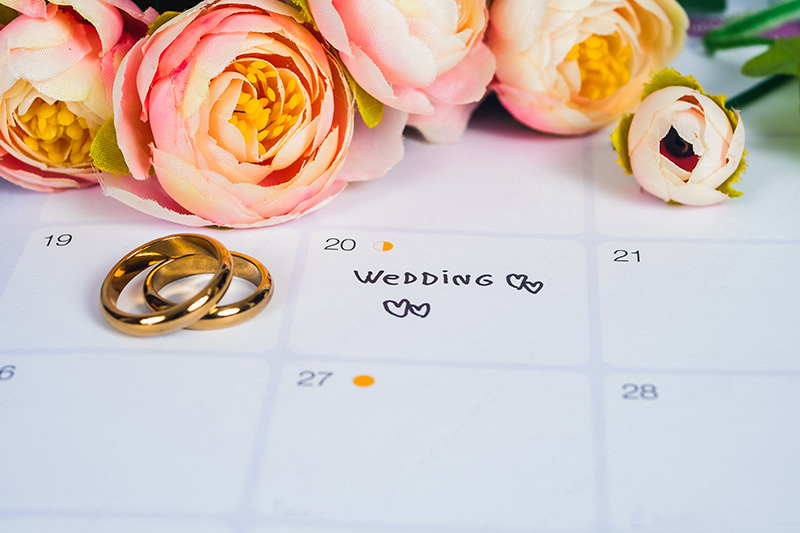It’s more common than ever before for couples of differing faiths to come together in marriage. Not so long ago, this wasn’t the case. But today, people are uniting not necessarily due to religious beliefs but because of shared interests and common values.
So whether you’re a practicing Muslim, a devout Catholic, you follow the teachings of Buddha, or one of the other 4,000+ religions out there in the world, you can rest assured that there’s a way to incorporate more than one faith into a marriage ceremony.
Sure, they’re bound to be ups and downs in the planning process, but at the end of the day, you’re marrying your soulmate and THAT’S what matters. Keep the faith, my friend. Here are a few ways to help you throw the perfect interfaith wedding ceremony for you and your spouse.
Make a Plan
Begin by sitting down with your fiance and make a solid plan. Note what aspects of your respective faiths are important to you as you craft your ceremony.
Do you insist on a particular officiant? What rituals are necessary for you and your families? What are the aspects of your faith’s ceremony that you don’t have to have.
Create a list of “Must Haves” and “Not Necessary” rituals, speeches, etc.
Decide on Officiant/s
Next, consider who you plan to ask to officiate the ceremony. This is definitely a tricky area because you may feel like you’re choosing between two different faiths.
Don’t worry, you have options.
First off, talk to your respective religious bodies about any particular protocol they follow. Because it’s more common nowadays to have an interfaith marriage, some officiants are willing to incorporate certain rituals from another wedding to appease and respect the desires of both families.
You can also think about using two different religious officiants to perform during the ceremony.
If these options don’t work for you and your fiance, it may be in your best interest to choose a secular officiant such as a friend, family member, or representative from your local municipality.
Prepare Key Players
Most often, it’s the families of the bride and groom that have the most trouble wrapping their heads and hearts around the idea of a wedding ceremony they’re not used to. Your job is to ease their minds.
Keep close family and friends in the loop regarding the ceremony, including what rituals and prayers you plan to keep in the program. Answer any questions they have and be mindful that this is difficult for them.
Final Tips for Interfaith Marriages
Here at Strawberry Wedding Photography, we’ve seen a number of interfaith marriages go off without a hitch. The key is to be transparent with friends and family and flexible in your expectations.
Here are a few additional tips to help you as you plan your interfaith ceremony:
- If you have any concerns about the ceremony, consider a closed ceremony for only immediate family and the closest of friends. Then, invite others to join in for the reception.
- Print programs that outline the order of ceremony events, include words for prayers, and explain the meaning behind the rituals you perform. That way, everyone’s on the same page.
- Use prayers and readings that are universal, such as works by Shakespeare.
Today, over 45% of marriages are considered interfaith, meaning that if you’re in an interfaith relationships, you’re in good company.
At the end of the day, your wedding ceremony is what you make of it. While it’s important to consider your faith in the ceremony itself, craft the program to match the needs and desires of you and your spouse-to-be.
Happy Planning!
